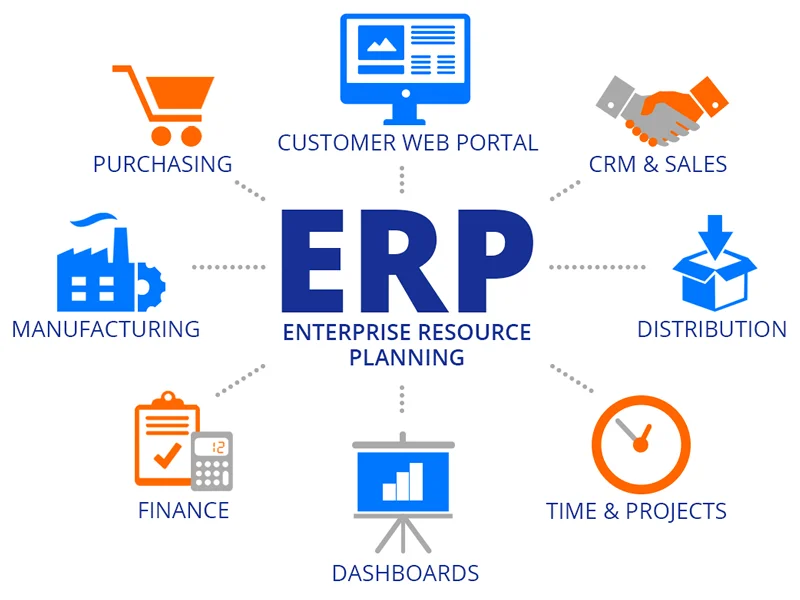The transition to flexible working arrangements has raised questions for many organizations. How can operations remain seamless while employees are dispersed? The rise of hybrid work models has also made efficient tools indispensable for maintaining productivity. This is where innovative software solutions have transformed operations.
For instance, cloud ERP by WAO Group offers a comprehensive framework that meets these demands. Its flexibility and ability to integrate various business functions make it a standout choice for managing distributed teams. Here’s why adopting these services is essential for modern workplace strategies.
Enhances Collaboration Across Teams
One of the biggest challenges for decentralised teams is effective communication. Traditional systems often fall short in connecting employees in different locations. A centralised software solution ensures all team members access real-time data from a single source.
This enhanced communication reduces delays and miscommunications. With updates instantly available to everyone, employees can collaborate without barriers. Tasks like document sharing, project updates, and performance tracking become smoother, boosting overall efficiency.
Seamless Integration with Existing Systems
Integrating a new platform with current software can feel daunting. However, the latest tools ensure compatibility with most business systems. By doing so, they eliminate the need for redundant processes while improving workflow efficiency.
Businesses can align their financial, human resources, and operational functions under one umbrella. This streamlining removes the hassle of switching between multiple platforms. Simplified workflows lead to better resource utilisation and quicker decision-making.
Scalability for Growing Needs
As businesses expand, their operational requirements become more complex. A static system cannot accommodate increasing demands, making adaptability essential. Modern software is built to grow with an organisation, offering flexibility in accommodating new users or functions.
Companies no longer need to overhaul their systems to meet future requirements. Whether onboarding additional team members or adding new capabilities, the system evolves alongside the organisation. This adaptability supports smooth transitions and uninterrupted operations.
Key Benefits of Automation
Automation is a cornerstone of productivity when managing a dispersed workforce. Here are some key advantages:
- Streamlined Processes: Automating repetitive tasks saves time and reduces errors.
- Improved Data Accuracy: Real-time updates ensure data reliability across departments.
- Time Optimisation: Employees focus on high-value activities, improving overall output.
- Enhanced Compliance: Built-in regulatory tools simplify adhering to industry standards.
These features are especially beneficial for organizations aiming to maintain consistency while scaling operations.
Data Security and Accessibility
Keeping sensitive information secure while ensuring it is accessible to authorized users is a critical concern. Traditional systems often compromise between these two needs, leading to vulnerabilities. Modern software provides robust encryption and multi-factor authentication features, safeguarding sensitive data.
Furthermore, automatic backups ensure that data is recoverable in case of unexpected disruptions. Simultaneously, cloud-based platforms offer 24/7 access to authorized personnel, regardless of their location. This ensures that employees remain connected to essential tools and resources, fostering uninterrupted workflow continuity.
Cost-Effective Solutions for Distributed Teams
Investing in tools that enhance team collaboration is more cost-effective than maintaining multiple standalone systems. A unified platform consolidates expenses related to hardware, software, and IT maintenance. These solutions reduce upfront costs and provide long-term savings, making them an attractive option for businesses of all sizes.
Additionally, the pay-as-you-go pricing models offered by many providers enable organizations to control expenses without sacrificing functionality. Cloud-based tools also eliminate the need for physical infrastructure. This is particularly beneficial for organizations embracing hybrid or fully remote work models, as it significantly reduces overhead costs.
Implementation of cloud ERP by WAO Group offers unparalleled advantages for businesses managing dispersed teams. Their ability to centralize operations, enhance collaboration, and scale alongside organizational growth makes them indispensable in today’s work environment. Adopting such tools ensures that businesses remain agile and efficient while meeting the evolving needs of a flexible workforce.
You may also read: Installing and Maintaining Flash Labels

